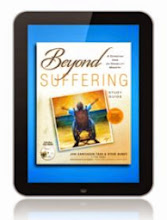Another aspect of that interaction intrigued me. I suspect that the hitchiker thought he was connecting with the cop, or at least thought he was attempting to connect with the cop. He talked about how he liked hockey, which he was socialized to think was a characteristic of white people. He also gave the impression he was developing an interest in country music. Once again, a good old white boy, driving an old car, the hitch hiker thought he was connecting with the cop when in reality he was illustrating his misperceptions about who white people are (true the cop was listening to country music on the radio).
We do the same thing with people with disabilities. We assume we know something about them because of the things we have been told, the way we have been socialized.
My daughter Amy and I love the film Good Will Hunting ("How do you like them apples!?). One of the scenes which we love is when Robin Williams' character confronts Matt Damon's character who has intimiated that he understands what it is like to have the life experience that Robin Williams has had. Williams' character asks whether Damon knows what the Sistine Chapel smells like because he has read about Michelangelo, or what it is like to hold a dying friend during a war because he has read War and Peace, or to go through the cancer of a loved one because he knows something about cancer. Williams also asks whether he (Williams) would know what it is like to grow up as an orphan (like Damon) because he has read Oliver Twist. The answer to all of these questions is obviously NO. Yet the Damon character acted as if he understood Williams without any life experience.
We do that. We do that all the time with people with disabilities. I must constantly remind myself that many of my friends experiencing cognitive disabilities see themselves as totally normal. My friends with down syndrome see themselves at TOTALLY NORMAL. They are living their lives and are pretty much happy with their lives. Others, however, think that they know what it is like to be disabled so they want to "alleviate their suffering" through abortion. They think they must be upset with their lot in life. They think that their disability consumes them. I don't know how to say this any more clearly.
THEY SEE THEMSELVES AS NORMAL.
There is nothing immoral about their disability or their perception of themselves in that way. It does no harm to me or anyone for them to see themselves as normal. It doesn't cost any more money for them to see themselves as normal. Yet we project our ideas on them and attempt to interact with them on the basis of our stereotypes and constructions of who we think they are.
What has the Church intimated about how it feels about people with cognitive disabilities? Do our actions indicate that we think they are just people? Does the Church's interactions in any way indicate that it sees people with disability in the way people experiencing disability see themselves? Or is the Church like the Matt Damon character, who having no experience, thinks he knows something? Matt Damon had an excuse as he was an impoverished orphan living in slums. What is the Church's excuse for not knowing or understanding?
What will it take for the rest of us to see people experiencing disability through their own eyes?
McNair
(fcbu)











3 comments:
"What will it take for the rest of us to see people experiencing disability through their own eyes?"
That's the $64,000 question.
I sure hope someone gives you the $64,000 so you can publish your book. More people need to start thinking about the wonderful questions you are asking.
Hey Jeff
How about the comment St. John made that we will become like Him when we see Him as He is.
Can that be tied into what Mother Teresa taught, echoing Matt. 25, that she saw the face of Christ in every suffering, rejected and marginalized human being?
I know we need to try to see people with disabilities as people only but perhaps a step in that direction will be taken when the evangelical church can recognize the face of Christ in people with disabilities.
And when we see Jesus in the disabled we may recognize our own brokeness and learn to be inclusive and not exclusive.
and we may become like the disabled and like the Son of God.
and then the kingdom may come
Post a Comment